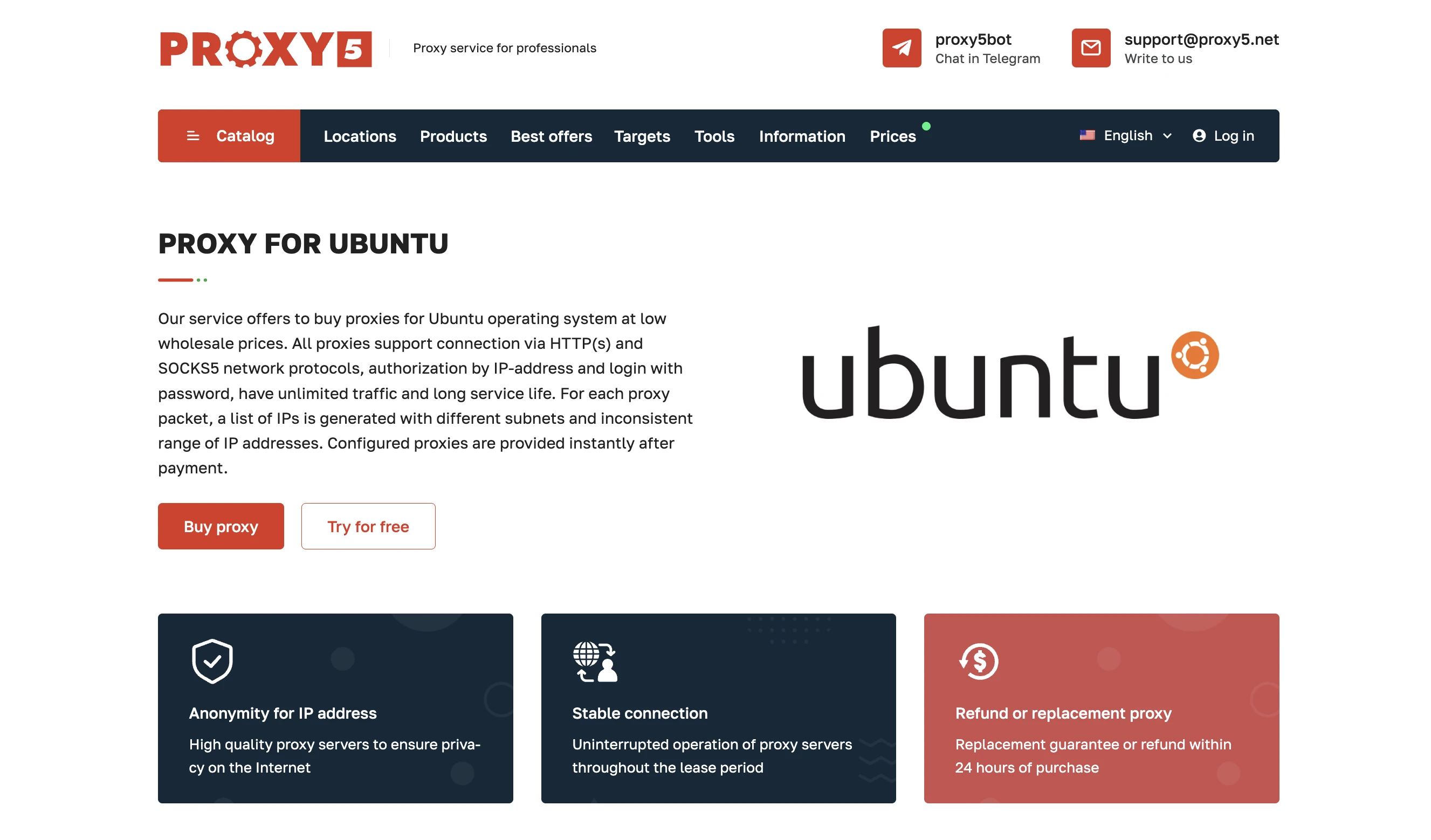n today’s hyper-connected digital world, privacy and security are critical for SEO specialists, marketers, entrepreneurs, and arbitrage teams. That’s where proxies come in. A proxy server acts as an intermediary between your device and the internet. It allows you to route your traffic through a different IP address, masking your real location and adding a layer of anonymity to your browsing.

When working on Ubuntu, an open-source and highly customizable Linux distribution, setting up a proxy is not just a technical decision—it’s a strategic move. Whether you’re managing web scraping tasks, automating SEO campaigns, or navigating geo-restricted content, using proxies with Ubuntu ensures a stable, secure, and scalable environment.
What makes proxies especially efficient on Ubuntu is the system’s compatibility with command-line interface (CLI) tools and scripts. This flexibility allows advanced users to deploy proxies in headless environments, cron jobs, or automated scripts—making Ubuntu the OS of choice for data-driven professionals.
Key Features of Using Proxies on Ubuntu:
- Enhanced Privacy: Your IP address is hidden, shielding your activity.
- Bypass Geo-Restrictions: Access services or websites unavailable in your region.
- Automated Task Support: Perfect for bots, scrapers, and SEO tools.
- Secure and Stable Connections: Thanks to native compatibility with protocols like HTTP(S) and SOCKS5.
By integrating proxies with Ubuntu, professionals unlock powerful tools to scale and automate tasks while staying secure and anonymous.
Where to Buy Proxy for Ubuntu OS?
Finding a trusted proxy provider can be overwhelming. But for those looking for efficiency, compatibility and scalability, Proxy5 stands out as a specialized solution for users who need proxies for Ubuntu.

Proxy5 offers reliable, high-speed proxies optimized for Linux-based systems including Ubuntu. This provider understands the nuances of professional workflows and delivers a complete package that combines technical features with user convenience.
Proxy5’s core advantages include:
- Supports HTTP(S) and SOCKS5 Protocols: Ensures compatibility with all browsers, tools, and scripts used on Ubuntu.
- Global IP Coverage: Choose proxies from different countries for worldwide access.
- Over 150,000 IPs Available: Scalable infrastructure to support projects of any size.
- 500+ C-Class Subnets: Reduces footprint and improves anonymity.
- Unlimited Traffic: Use as much data as your tasks demand—no throttling.
- High-Speed 100 Mbps Channels: Fast and stable performance for scraping or automation.
- Flexible Authorization Options: Use either IP-binding or login-password combinations.
- Easy Integration via URL or Manual Copy: Export proxy lists for direct import into tools.
- Proxy Rotation Available: Refresh IPs every 8 days to avoid bans.
- User Dashboard: Manage IPs and authorizations through an intuitive control panel.
- Instant Activation: Access your proxy list right after payment.
Get a 60-minute free trial proxy to test functionality and speed before purchasing.
If you’re an Ubuntu user needing a reliable proxy provider with enterprise-level features, Proxy5 is a clear winner. Its setup process is seamless, pricing is competitive, and its infrastructure supports even the most demanding operations.
Should You Buy Proxies for Ubuntu or Use Free Ones?
Free proxies might seem tempting—especially for startups or solo entrepreneurs—but they come with serious trade-offs.
Here’s a quick comparison:
| Feature | Free Proxies | Paid Proxies |
|---|---|---|
| Speed | Slow and unreliable | Stable 100 Mbps |
| Security | Often compromised | Fully encrypted |
| Uptime | Frequently down | 99.9% uptime |
| Protocol Support | Limited | HTTP(S) and SOCKS5 |
| IP Variety | Minimal | 150,000+ IPs |
| Customer Support | None | 24/7 technical support |
| Legal Compliance | Questionable | Fully licensed provider |
| Compatibility with Ubuntu | Low | Fully supported |
Free proxies can expose your project to risks such as IP bans, slow speed, and security breaches. Paid proxies from Proxy5 not only mitigate these risks but also provide performance and scalability for serious users.
How to Set Up Proxy in Ubuntu OS – Step-by-Step Guide
For Ubuntu users, configuring a proxy is easier than it sounds. Let’s walk through the most efficient method.
1. Using Environment Variables (for Terminal-based apps)
Open your terminal and type:
export http_proxy="http://username:password@proxy5server.com:8085" export https_proxy="https://username:password@proxy5server.com:8085" export socks_proxy="socks5://username:password@proxy5server.com:1085"
2. System-wide Proxy Configuration (GUI-based)
- Go to Settings > Network.
- Click on Network Proxy.
- Select Manual and fill in: HTTP Proxy:
proxy5server.comand Port:8085. HTTPS Proxy:proxy5server.comand Port:8085. - Apply system-wide settings.
3. Test Proxy Functionality
Check IP via:
curl ifconfig.me
You should see your new proxy IP.
Tips
- Use ports
8085for HTTP/HTTPS and1085for SOCKS4/5. - Proxy5 allows passwordless access via IP-binding for seamless testing.
- Always restart apps after setting environment variables.
How Users Leverage Proxies on Ubuntu
Ubuntu + Proxy = A powerful combo used across many industries.
Top 10 Use Cases for IPv4 Proxies on Ubuntu:
- SEO Monitoring and Auditing
- Web Scraping & Data Mining
- Competitor Price Tracking
- Social Media Automation
- Ad Verification
- Multi-Account Management
- Content Localization Testing
- Bypassing Geo-restrictions
- Anonymous Market Research
- Automated Lead Generation
Whether you’re running automated scripts or conducting international research, proxies give Ubuntu users the edge needed for efficiency, privacy, and performance.

